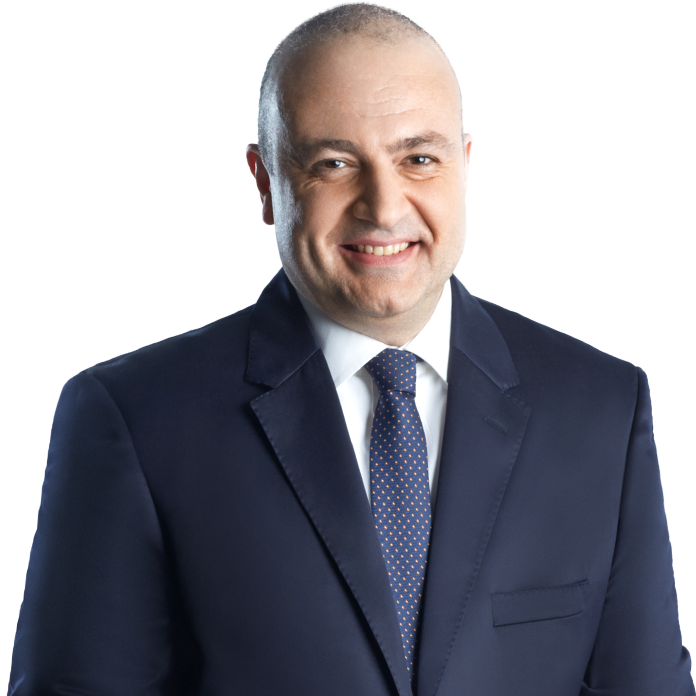The U.S. has thousands of military bases and plants around the world. The most important among these are the three in Germany, Japan and Turkey’s Incirlik.
When the coordinates of these three bases are joined, you can see the global shield/siege line dug up by Washington and its allies since World War II to date.
As is known, the U.S. and generally the West’s bases of such scale/type are “hegemony stations and symbols.” Additionally, these bases “give direction” to the host country, constantly reminding them of the “point of bearing” about where they need to stop. They hang over the heads of governments in power like the sword of Damocles.
The U.S.’s 6th fleet that has become popular once again by taking position in the Eastern Mediterranean, which have “armada sets” similar to aircraft carriers at its center, are also floating bases.
They are used for the same reason: to protect the hegemony, and from time to time, to bring to line the allies that “divert from the path.”
These are exactly the roles played by the Incirlik Base on July 15 and for the construction of the terror corridor in our south under the name “Provide Comfort” in the early 1990s.
It is interesting that July 15 and Provide Comfort are all for the “parallel state.”
Chalmers Johnson, the author of “America’s Empire of Bases” says: Once upon a time, you could follow the spread of imperialism by counting the number of colonies. The American version of colonies is military bases.” (January 2004)
In other words, such military bases “have a meaning beyond military thought. Before anything, they are political regulations that have bilateral, international, cultural and economic results.” ('Base Realignment and Closure Report, Commission on Review of Overseas Military Facility of the US, May 2005.)
Whenever a crisis breaks out with the U.S. and the West, this is the right behind the demands rising among the Turkish public to “close down Incirlik.”
However, in the point reached today, the existence of Incirlik and similar bases appear to have turned into Turkey’s diplomatic/military card. It is controlled from Ankara and as the last card, the Sword of Damocles is now hanging over its owner.
We have three bases that have overseas strategic value. They have not yet reached the usual military significance, but they are being completed fast.
Our base, which has undertaken an important task in Qatar was reinforced at the brigade level, our base at the Anatolia Barracks in Somalia and lastly, our presence at Sudan’s Suakin Island. This trio forms an architectural triangle and both its internal area and position according to the neighboring seas; the Gulf, Red Sea and Hejaz are creating military and political value through the Eastern Mediterranean.
Let alone, we can position the Turkish presence in sister country Azerbaijan, which is in the Caspian Basin, and the Turkish base that is likely/should be in Yemen on the same map.
This leads us to the critical question of, “What is the aim of Turkish bases?” do we have “hegemonic, imperialist aims” just like U.S./Western bases?
The Qatar Base alone tell the situation: The “Globe Coalition” established by the U.S., Saudi Arabia, the United Arab Emirates (UAE) and Israel planned and staged a coup targeting Doha
This was a huge trap set up by hegemony and imperialism with their cooperators in the region. If Qatar fell, it was going to spread all the way to the Black Sea. The game was spoiled by Turkey, which used troops, and thus, it defended “justice” against the attacks, the colonization aimed at Islam for the rights of all the countries in the “Great Middle East” – actually, observing the existence of Saudia Arabia and the UAE, as well as Iran in the future – and won.
In its own aspect, it also – geographically – regressed the moves for the terror corridor that is tried to be set up in Syria and Iraq to divide Turkey. It placed the defense line inside them.
It is unknown whether the sacrifices that span the Afghanistan-Pakistan line from Cyprus, the East-West line, the Caspian Basin from the Black Sea and the North-South line that reaches Yemen, but at least all the people living in this region understand “what the Turks want to do.”
The reference Turkey is making to the historic acquis at the helm of the Black Sea-Mediterranean-Red Sea-Persian-Caspian, is to emphasize that its presence is not to establish colony bases, but for justice and legitimate defense. Those who are disturbed present the developments to their people as, “Ankara’s Ottoman desires.” The banning of TV series is an expression of this.
This is the difference between being a country that watches Dallas and “markets service” to U.S. bases and for example, remembering the history in Yemen. “These people who never bowed down to any community in history in Yemen, are exemplary tribes that have been able to become a single body with the Ottomans. The centuries of service to the region has a share in this loyalty. Many institutes in Yemen’s San’a today, from police lodgings to their military barracks, from museum buildings to art schools, continue their activities in structures built by Abdülhamit Han.”
It continues… “According to the Armistice of Mondros, when the demobilization of Ottoman armies was in question, Yemen prevented Ottoman administrators and troops from leaving and some 3,000 commissioned officers and administrators remained in Yemen.”
(“Payitaht'ın Son Sahibi-Abdülhamit Han,” (Capital City’s Last Owner-Abdülhamit Han) T. Uğurluel, p. 107-8-9)
If the Incirlik base were to be closed, who here would insist on U.S. officers to stay?
The answer to this question explains the presence of Turkish bases in the region.




















